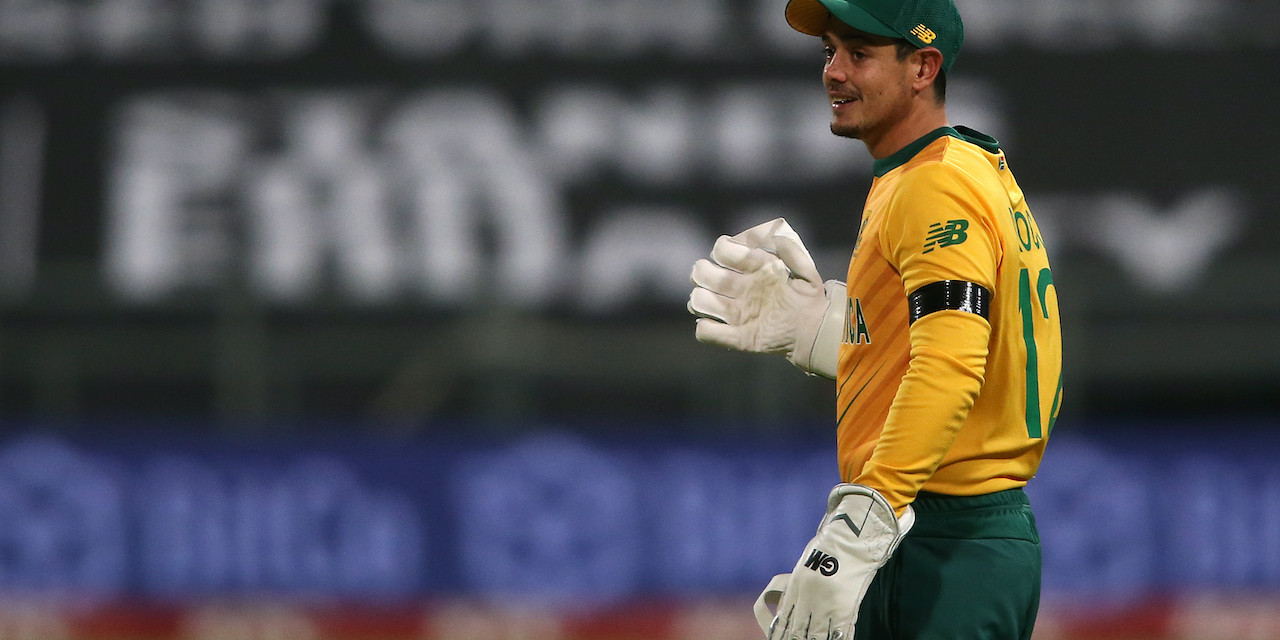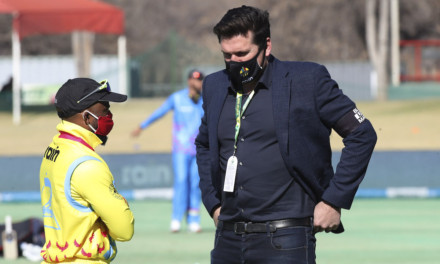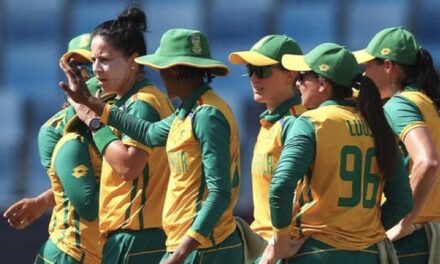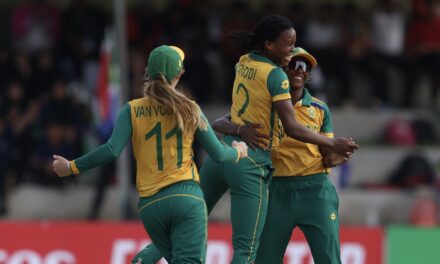After removing the emotions and reflecting on the match, there there are many positives to take out of the Proteas’ 5-wicket defeat to England, writes Chris Chiwanza.
On March 3, 1991, in a Benson and Hedges Cup semi-final tie at Kingsmead, Transvaal played Natal Province in a match that has gone on to stick in the memories of many cricket fans.
In the match, Natal Province needed 10 runs off the last ball of their match against Transvaal. Jonty Rhodes was at the crease facing Richard Snell. The match was all but over at this point, there seemed to be no way Transvaal could lose the match at this point. 10 runs from one ball is a statistical improbability.
However, in cricket, the saying goes, “You don’t celebrate until the last ball has been played.”
On the last delivery, Snell bowled a no-ball that Rhodes dispatched to the boundary, and now the match hung in the balance. One bad ball and Natal would win. And sure enough, Snell delivered that one bad ball which Jonty Rhodes hit for a six, sealing the victory for Natal.
Richard Snell’s final over is in no way different from Beuran Hendricks’ final over. As the Proteas were fighting to put the match beyond England, Hendricks had the proverbial trainwreck over that cost the side 28 runs. In the costly over, Beuran bowled three wides, one of which resulted in five runs after it ran for a four. That ball was Hendricks’ undoing as he overcorrected and failed to regain control of his over.
Does this make Hendricks a bad player? No. He simply found himself in a difficult position. He knew that his over would set the stage for Rabada and Ngidi to either defend the last two overs or not. He succumbed to what psychologists call cognitive tunnelling.
Cognitive tunnelling, also called Cognitive Capture and Inattentional Blindness is the mental state in which your brain focuses on only one thing. As a result, your brain does not see other relevant data. This perceptual blindness causes our attention to missing even the most obvious clues to the problem that can be right in front of us.
ALSO READ: Defining moments: South Africa vs England 1st T20I
In short, Hendricks failed to realise that despite going for five runs on a wide, all was not lost, and instead of trying to correct the mistake of the previous delivery, he just needed to carry on doing what he does best.
However, Hendricks got distracted by trying to regain control of the over and correcting the mistake of his fourth delivery. In the end, his last two deliveries went for 17 runs. A moment of panic.
Of course, that one over is the lense through which many will judge Hendricks and the Proteas’ performance by. But, it is an unfair lense to view a bowler with as good an economy as he does. And as the Proteas captain, Quinton De Kock, said, England’s victory was not solely because of the 17th over, there are other “small things in the field we could have done differently, match awareness. We didn’t play badly, they played really well.”
As one of South Africa’s prominent sports broadcasters, Udo Carelse says, “England, right now, have the resources to get them out of any hole.”
Part of the reason for that is not just because they have match winners in the squad, but they also have had time around each other with the same playing philosophy.
After all, even though England is experimenting with different positions for some of their players, they are a gelled squad. They understand each other as players.
Up to nine squad members of the English squad have played together, with the same philosophy, for more than three years. All of them have played together for about two years.
As Eoin Morgan summed it up, “Collectively, regardless of the team and the time around each other, the more we play the more we will gel. Not doom and gloom, nice to start with a win, but we need to be doing the right things. We had a lot to make up.”
The Proteas, on the other hand, have not yet gelled. They are still trying to understand their roles and each other’s roles in the new playing philosophy that they are embracing. But, despite Mark Boucher stating that positions are open, the top order seems to be halfway to finalization with Temba Bavuma as Quinton De Kock’s opening partner, and Du Plessis coming in at number 3.
Udo Carelse weighed in on the top six saying: “I think with the bat, Temba needs to take some responsibility for being inventive too early when his natural skill set would have done him just fine.
“Having said that, it was Temba’s first T20 failure with the bat for the Proteas. He is still my T20I opener along with De Kock, with Janneman Malan as the alternate. Although I am still pondering the right place for Rassie in the lineup.”
Also notable was the absence of a batting allrounder from whom the team can also get one or two decent overs from if the frontline bowlers went for runs. The result of this was that Quinton de Kock had to resort to giving Heinrich Klaasen an over, who, in the context of the match, didn’t do too badly. He went for 14 runs.
Photo: Shaun Roy/BackpagePix
Watch our review:











